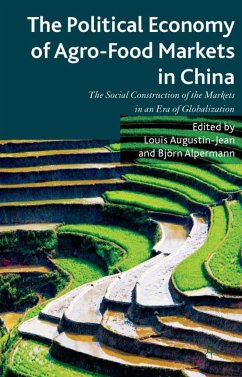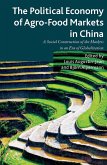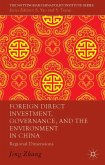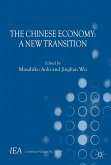China's agricultural production and food consumption have increased tremendously, leading to a complete evolution of agro-food markets. The book is divided into two parts; the first part reviews the theoretical framework for the 'social construction of the markets,' while the second part presents the implication for the agro-food markets in China.
"This volume sheds light on a set of industries that have not been well studied in the China context: the production of food. The authors combine theoretical insight with case studies of the organization of various food markets in China. The book is an antidote to those who view China's transition in monolithic terms, either as state led development or as bottom up market processes. The studies instead demonstrate the complexity of China's market transition. They show how the history of production, government intervention, and new and novel forms of firm organizing, have produced a mosaic of new industries. It demonstrates that without considering all of these factors, scholars will make little progress in understanding China's multifaceted development project. The China that emerges from these studies is not easily reducible to a slogan but instead shows diversity and complexity." - Neil Fligstein, University of California, USA
"This theoretically sophisticated treatment ofthe institutional and political dimensions of agricultural and food markets in China is a must read for anyone interested in understanding the processes of agricultural change in the world's fastest developing nation. Based on rich empirical research across a stunning range of agricultural production sectors, the authors collectively explore the strategic but differential role the state has played, both successfully and unsuccessfully, in the transformation of China's agro-industrial markets. They brilliantly deploy the tools of economic sociology to examine often conflicting interests, incentives and perspectives between central and local governments, private and public firms, and producers and consumers and to explain widely diverging outcomes in efforts to modernise China's vast countryside." - James Putzel, London School of Economics and Political Science, UK
"Written by an international team of distinguished scholars, this book provides a solid overview on agro-food markets in China in the light of Economic Sociology. This timely essay will be of great help to any researcher in the field of agribusiness studies.
Moreover, it will certainly become an obligatory reference for all those engaged in the analysis of agro-food in China." - Ruth Rama, National Research Council of Spain, Spain
"This theoretically sophisticated treatment ofthe institutional and political dimensions of agricultural and food markets in China is a must read for anyone interested in understanding the processes of agricultural change in the world's fastest developing nation. Based on rich empirical research across a stunning range of agricultural production sectors, the authors collectively explore the strategic but differential role the state has played, both successfully and unsuccessfully, in the transformation of China's agro-industrial markets. They brilliantly deploy the tools of economic sociology to examine often conflicting interests, incentives and perspectives between central and local governments, private and public firms, and producers and consumers and to explain widely diverging outcomes in efforts to modernise China's vast countryside." - James Putzel, London School of Economics and Political Science, UK
"Written by an international team of distinguished scholars, this book provides a solid overview on agro-food markets in China in the light of Economic Sociology. This timely essay will be of great help to any researcher in the field of agribusiness studies.
Moreover, it will certainly become an obligatory reference for all those engaged in the analysis of agro-food in China." - Ruth Rama, National Research Council of Spain, Spain








